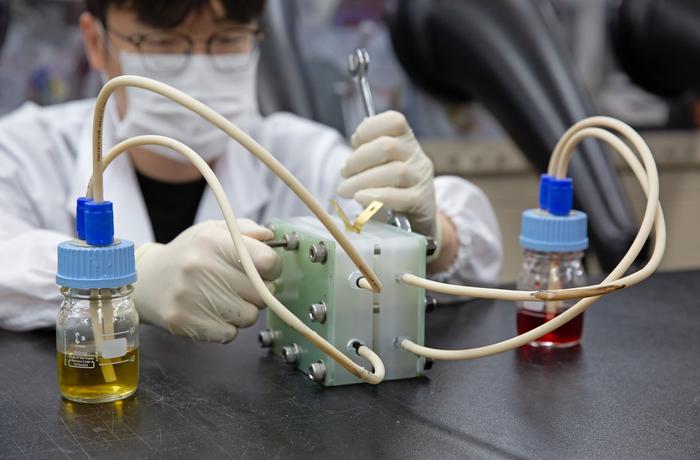Battery innovation is essential for advancing climate technology, significantly contributing to renewable energy adoption and reducing carbon emissions. Recent developments highlight this importance; the article below includes highlights from research conducted by Professor Y. Shirley’s laboratory at University of Chicago and Dr. Seunghae Hwang’s team at the Korea Institute of Energy Research.
Research: UChicago Pritzker Molecular Engineering Professor Y. Shirley Meng’s Laboratory for Energy Storage and Conversion has developed the world’s first anode-free sodium solid-state battery.

Image Credit: UChicago Pritzker School of Molecular Engineering / John Zich

Key Highlights:
- This innovation promises inexpensive, fast-charging, high-capacity batteries for electric vehicles and grid storage.
- Published in Nature Energy, the research demonstrates stable cycling for several hundred cycles.
- By removing the anode and using abundant sodium instead of lithium, these batteries are more affordable and environmentally friendly.
- The solid-state design also ensures safety and high performance.
- Sodium is abundant compared to lithium, which is scarce and environmentally damaging to extract.
- The innovative architecture uses aluminium powder as a current collector, maintaining effective contact with the electrolyte and enabling efficient battery cycling.
Research: Dr. Seunghae Hwang’s team at the Korea Institute of Energy Research has improved the performance and cycle life of redox flow batteries by introducing functional groups that replace active materials and enhance solubility and stability.

Image Credit: KOREA INSTITUTE OF ENERGY RESEARCH
Key Highlights:
- This development is crucial for renewable energy storage, which requires systems that can store energy for over eight hours and reuse it as needed.
- Current redox flow batteries use vanadium, but limited reserves have spurred research into alternatives like organic viologens, which are cheaper but suffer from low solubility and instability.
- By adding sulfonate and ester groups, researchers increased viologen solubility. Alpha-methyl groups were added to prevent structural degradation during charging.
- The modified redox flow batteries showed over double the energy density of vanadium batteries, with 99.4% coulombic efficiency and 92.4% capacity retention after 200 cycles.
- This research, published in “ACS Applied Materials and Interfaces,” supports the development of cost-effective, durable energy storage solutions essential for renewable energy expansion.
SOURCE: EurekAlert!
Featured Image: Credit: MIT Technology Review








